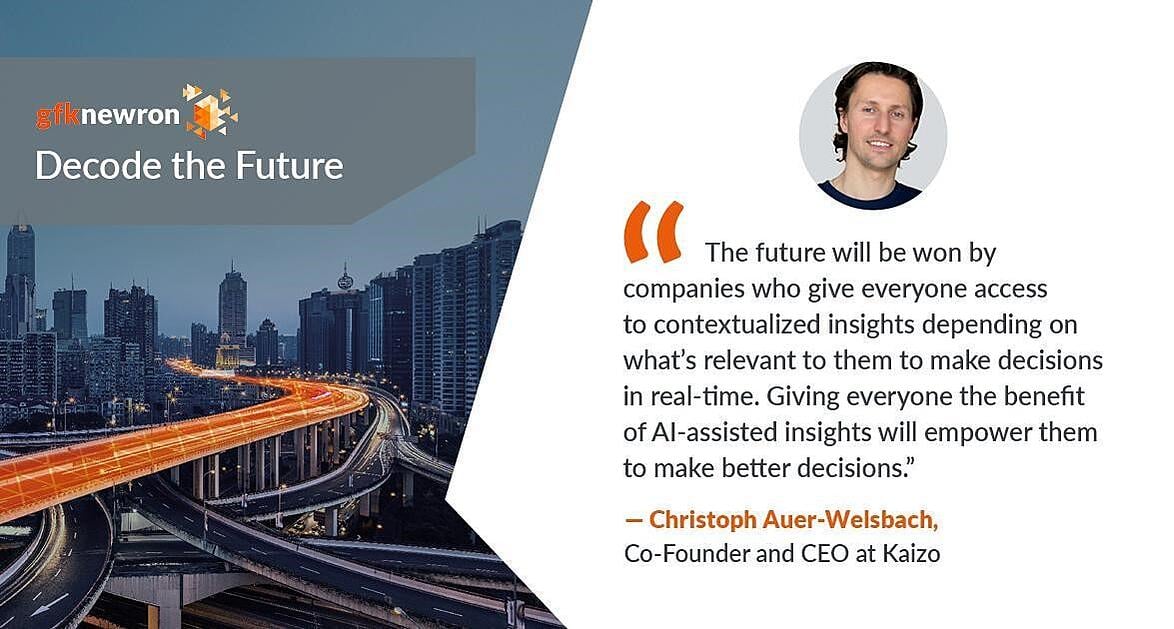
Today’s world changes fast, and organizations need to be agile to keep up. They need to respond to market fluctuations more quickly, but also to predict changes before they happen. Watch our recap video from Decode the Future to see how we explore real-time access to the latest data and intelligent automation — and how you can make your business more resilient to rapid change.
***
The pandemic impacted how consumers work, travel, communicate, and even define their values and lifestyle. Issues such as social justice, equity in the workplace, and the effects of global warming have accelerated unprecedented market shifts, challenging even the savviest businesses to adapt.
This pace of rapid change has amplified the need for business resilience by highlighting the need for brands to adapt their offerings to fit consumer expectations in real-time — or risk a negative impact to sales if they don’t have the insights necessary to take action.
“Building and maintaining differentiation in the market means brands need to be agile enough to recognize shifts that hold the potential to alter core areas of their business,” says Sean O’Neill, Chief Product Officer at GfK. “Otherwise, they run the risk of missing out on opportunities — or of those opportunities turning into challenges down the road.”
While the concept of business resilience in the past focused more on building strong assets and operations internally, today’s landscape requires companies to be nimble and put decisions to task with agility. Here, we help decision-makers understand how to assess their readiness for making data-driven shifts and, most importantly, how to enhance their agility and resilience as a business in 2021 and beyond.
Make your business resilient by learning to navigate change
While some trends have been overshadowed by the day-to-day realities of the pandemic, others have taken center stage — including environmental sustainability. In fact, consumers placed a greater emphasis on decreasing their environmental footprint in 2020 than ever before. For example, our GfK Green Consumer Europe 2020 report reveals that one-third of households in Europe have halted purchases that negatively impact the environment or society. Likewise, GfK data shows that habits adopted during the pandemic, such as the shift to online shopping, are here to stay.
A great example of business resilience can be seen in Coca Cola’s response to this changing consumer dynamic. The company introduced a new, 100% recycled plastic bottle in the US, stating that the move will reduce its use of new plastic by 20%. This initiative, developed in line with a 2018 pledge to make 100% of the company’s packaging recyclable by 2025, required significant shifts within the Coca-Cola structure — from strategy to manufacturing to marketing and partnerships. But the ability to act on this feedback that consumers want recycled and reusable options is a signal of how brands can win by pairing customer-centric decision-making with organizational resilience.
“Navigating these periods of uncertainty starts by putting your customer at the heart of your thinking,” says Matt Davies, Global Brand and Culture Consultant. “Particularly through volatile periods, the need to focus on how a brand is going to help its customers becomes even more important.”
As consumer preferences and markets continue to shift in the coming years, building the kind of business resiliency required to weather change will become even more important — and that starts with a laser focus on customer experience paired with the proper infrastructure.
How to structure your organization to act on real-time insights
While the future isn’t always easy to predict, having access to real-time market data is critical for business resilience. One way to infuse the ability to put important insights into action throughout an organization is to plan an operations and communication strategy for the teams that will most benefit from access to data, such as marketing, sales, and product teams. Then, focus on employing a decision-making process that allows them to create consensus and act with agility.

Another example of business resilience can be found at American Express, which uses predictive analytics cross-functionally to forecast customer retention from historic transactions. It can predict 24% of accounts that will close within four months, enabling it to adapt both its marketing strategy and revenue forecasts. American Express also uses AI in risk analysis to make real-time decisions when determining eligibility. As consumer behavior changes, access to real-time data across teams is no longer a luxury, but a necessity that helps to keep brands competitive while properly assessing risk.
“The future will be won by companies who give everyone access to contextualized insights to them to make decisions in real-time,” says Christoph Auer-Welsbach, Co-Founder and CEO at Kaizo. “The benefit of AI-assisted insights will empower them to make better decisions.”
How should you structure your organization to be agile with data and AI? It’s about configuring the AI platform or technology you use to read data signals and drive intelligence through customized algorithms, recognize patterns, and provide actionable insights — then giving strategic thinkers access to this information so they can find creative solutions to capitalize on what the data tells them.
“The days of data monoliths are over,” says Lindsay Herbert, author of Digital Transformation. “When responding to change it is easy for businesses to accelerate in several different directions at once. Silos must be broken down to connect the dots and see the bigger picture.”
At GfK, we understand the ROI of data and Artificial Intelligence (AI). Data-driven organizations experience an average of 30% growth year-over-year, and staying ahead of future shifts hold even more promise as brands look to implement these practices that can help them become more resilient. While these tips can serve as a starting point for brands looking to become the shapers of tomorrow, we believe that gfknewron marks the next step in market, brand and consumer intelligence, radically transforming data-centric decision-making and enabling teams to gain actionable and connected insights, collaborate effectively, and act at speed to ignite sustainable growth.
***
Learn more ways of working with data and AI to future-proof your business by watching our recap video from, Decode the Future, marking the launch of gfknewron — a single access point to your brand, market, and consumer intelligence, enhanced with AI foresight and recommendations. Listen to global experts about dynamic new approaches to data and intelligent automation, and how they empower your business to make better decisions, faster.
Learn more about how sustainable behaviors in FMCG are becoming mainstream across Europe in our on-demand free webinar below.
<!– [if lte IE 8]>





